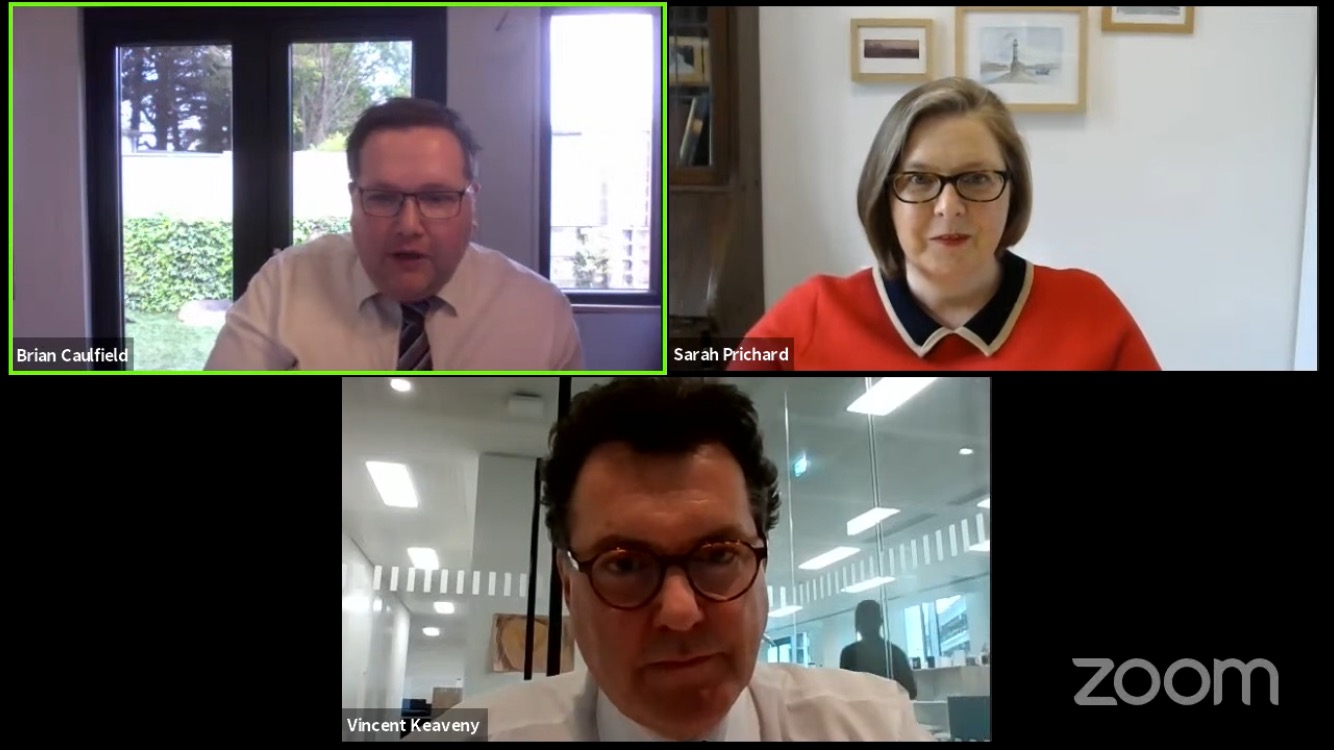It goes without saying that achieving goals such as carbon neutrality and a sufficient amount of green spaces are currently high on many world leaders’ agendas. As part of the Trinity Development Alumni webinar series, Vincent Keaveney, who graduated from Trinity with a MLitt in 1988, and Dr. Sarah Prichard, who completed both her undergraduate degree and PhD in Structural Engineering in Trinity, joined host Dr. Brian Caulfield to discuss the research, challenges, and innovations involved in developing sustainable cities.
With a specific focus on London, Keaveney explained that in the world’s capital cities, “an awful lot of what we do has a major climate impact”, with great concern being harboured “around development and buildings” specifically. While a lot more needs to be done to achieve a carbon neutral United Kingdom by 2050, Keaveney noted that some great progress has already been achieved.
A development recently completed in London promises to consume only 30 per cent of the electricity used by the building it replaced, despite being three times its size. “There is real progress being made in some of this”, said Keaveney, “but that in itself isn’t going to be the whole answer, as we all know”.
A hypothetical question posed by an attendee of the webinar asked what sustainable efforts Caulfield would implement if he were mayor of Dublin, to which he answered that he would “limit the amount of parking that we have in Dublin city centre”, in order to reduce carbon emissions. In light of the fact that the reduced parking available in Trinity means that “99 per cent of all the people who travel to our campus travel by a sustainable mode of transport”, Keaveney believes that eliminating the “incentive” to drive into the city will curtail the amount of cars on the road and subsequently decrease carbon emissions.
In discussing the role of cities, Prichard defended the importance of the “15-minute city idea, where you live, work and play effectively all within 15 minutes of each other, so it reduces the need for cars and doing those long commutes”.
Public transport will be essential for addressing the climate crisis in urban areas, Keaveney stressed, stating that all major cities around the world should offer their citizens “clean, safe, but environmentally sustainable transport”.
Keaveney is also keen to maintain the tradition of London cafés being spaces where people can collaborate and share ideas. He assured attendees that in a post-pandemic world “the idea of a city being just one big coffee shop where people get together to share ideas and to create, whether it’s businesses or whether it’s great art, whatever it is, that will come back”.
Speaking directly to students of all faculties, Prichard outlined the three most important attributes that, according to her, a new graduate should have. Firstly, she believes that all Trinity graduates should possess “a personal drive to make a unique contribution to a sustainable and equitable future”, while also developing “a deep understanding of the climate and biodiversity emergency”. She maintains that “[the climate emergency] is the crisis of our time”.
Secondly, Prichard stressed the importance of communication and team working skills. “You need to be able to advocate for what it is you believe”, she emphasised. The third and final attribute that she asked graduates and graduates-to-be to prioritise was “an understanding of the fact that [graduates] need to evolve and develop themselves and their businesses, confident in the knowledge that uncertainty is about the only thing that is certain”.
The full webinar is available to watch here. The next webinar in the Future Cities series will discuss sustainability in the city of Hong Kong.






